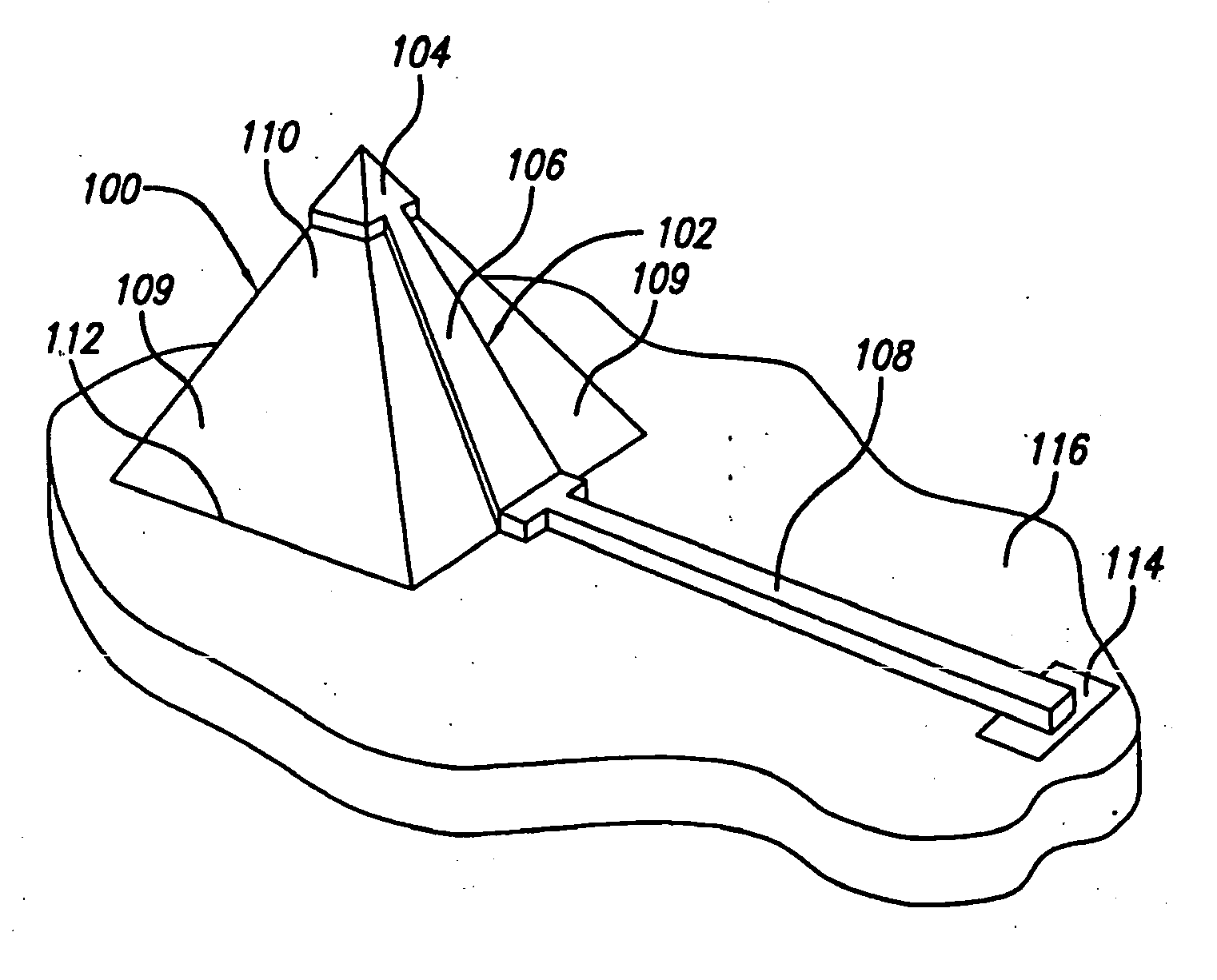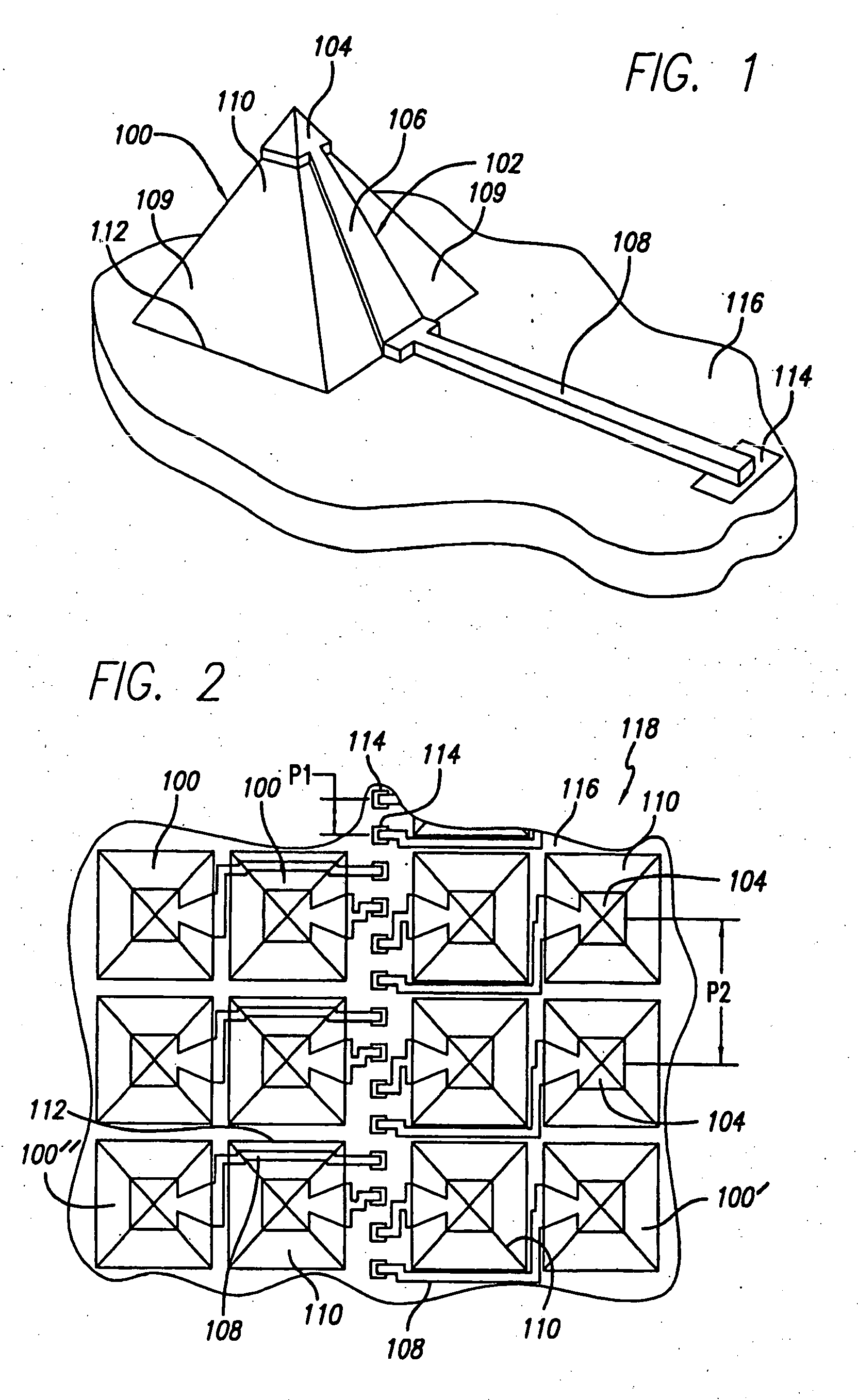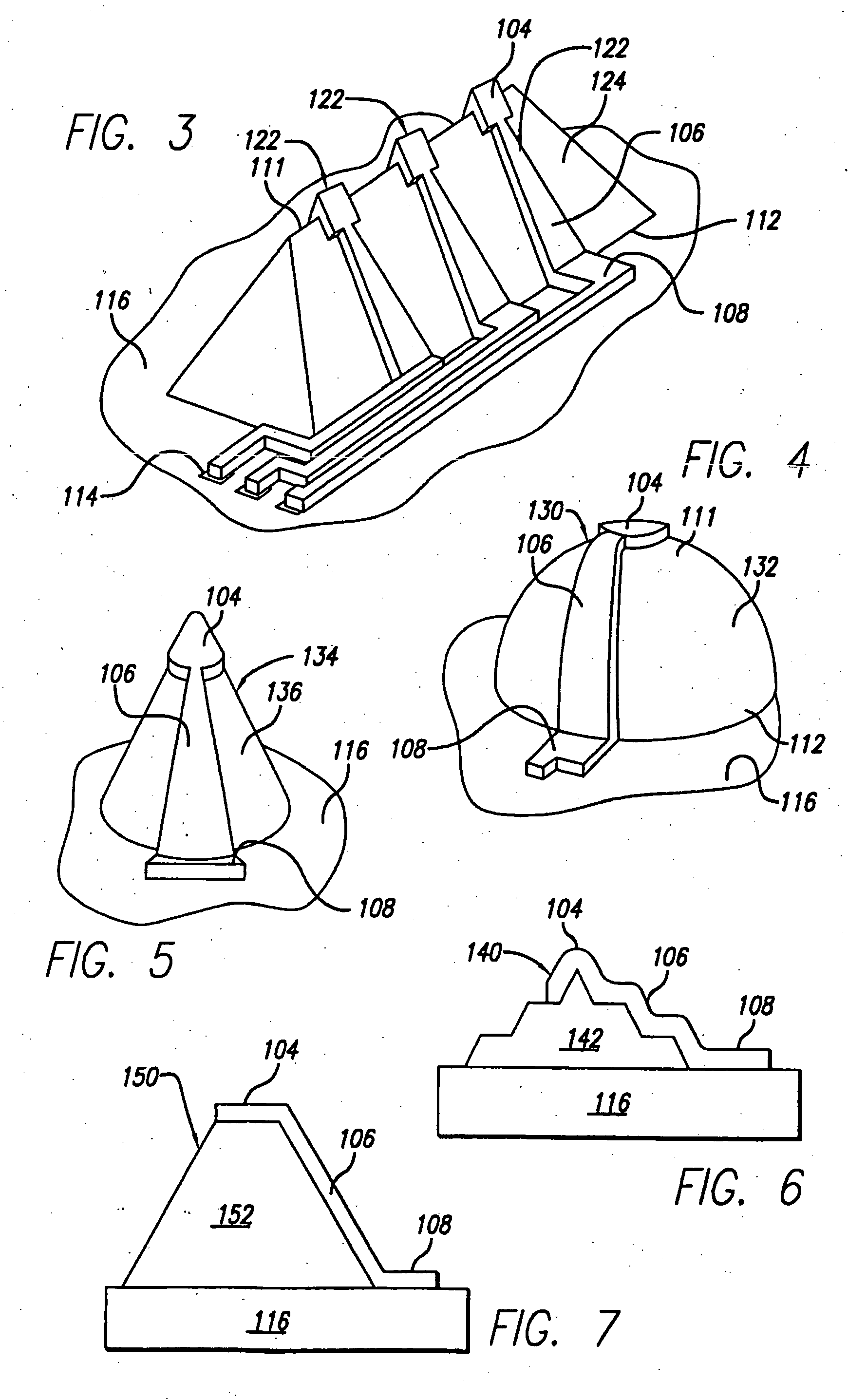Layered microelectronic contact and method for fabricating same
a micro-electronic contact and micro-electronic technology, applied in the field of micro-electronic contacts, can solve the problems of low manufacturing cost of fine-pitch spring contacts, inability to readily re-use, if at all, and the inability to manufacture fine-pitch spring contacts, which is difficult to meet the needs of less cost-sensitive applications,
- Summary
- Abstract
- Description
- Claims
- Application Information
AI Technical Summary
Benefits of technology
Problems solved by technology
Method used
Image
Examples
Embodiment Construction
[0056] The present invention provides microelectronic spring contacts that overcome limitations of prior art spring contacts. In the detailed description that follows, like element numerals are used to describe like elements appearing in one or more of the figures.
[0057] The present invention achieves the benefits of multi-layer and single-layer lithographic spring contacts as disclosed in the patent applications referenced herein, at a potentially lower cost, and provides additional advantages for certain packaging and connecting applications. The spring contacts of the present invention are believed especially suitable for compact packaging applications, such as flip-chip packages and CSP's, where they may replace or augment the use of ball grid arrays as connection elements.
[0058] With proper selection of materials, the spring contacts may also be used for testing and burn-in applications. It is therefore within the scope and intent of the invention that spring contacts accordi...
PUM
| Property | Measurement | Unit |
|---|---|---|
| flatness | aaaaa | aaaaa |
| aspect ratio | aaaaa | aaaaa |
| aspect ratio | aaaaa | aaaaa |
Abstract
Description
Claims
Application Information
 Login to View More
Login to View More - R&D
- Intellectual Property
- Life Sciences
- Materials
- Tech Scout
- Unparalleled Data Quality
- Higher Quality Content
- 60% Fewer Hallucinations
Browse by: Latest US Patents, China's latest patents, Technical Efficacy Thesaurus, Application Domain, Technology Topic, Popular Technical Reports.
© 2025 PatSnap. All rights reserved.Legal|Privacy policy|Modern Slavery Act Transparency Statement|Sitemap|About US| Contact US: help@patsnap.com



